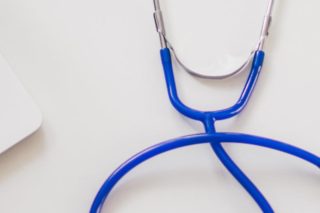In 2019 alone, 50,000 people in the United States lost their lives to opioid addiction. This number continues to rise as millions battle addiction to opiates and opioids each day. Family members and loved ones often try to help by keeping the addict from using. With opioids or opiates, withdrawal symptoms are intense, so this is not wise. Those who understand this then look for a way to reduce the symptoms. Their hope is that by reducing the withdrawal symptoms, the addict will be more likely to begin a journey to recovery. While there are other ways to detox from opiates or opioids, many are curious about the use of DXM for withdrawal symptoms.
Is DXM for Opioid Withdrawal Effective?


Table of Contents
What Is DXM?
DXM, or dextromethorphan, is a cough suppressant. It is used in cold and flu medicines that most people keep in their homes because they are affordable and available. Some of the most common brands that include DXM include Vicks, Delsym, and Robitussin. When used as intended, DXM reduces the body’s urge to cough. Research has also found that DXM is useful for treating pain. This is promising for people who are not comfortable with the risks of prescription pain relievers.
DXM and Opioid Withdrawal
A study by the American Journal on Addictions1https://www.ncbi.nlm.nih.gov/pmc/articles/PMC3706070/ shows that DXM can lessen the effects of withdrawal. It can also reduce the time it takes to detox. To do so, addicts are given 10 to 20 mg of dextromethorphan every 4 to 6 hours. There are other medications used during detox, but they have much more serious side effects than DXM. Buprenorphine/Naltrexone, for example, is used a lot, but many replace the opioid addiction with an addiction to Buprenorphine/Naltrexone instead. While DXM is less addictive than other options, it is important to note that it can also be misused.
Symptoms of Opioid Withdrawal
A person who is addicted to opioids needs the drugs to function. Their body and their brains are addicted. Friends and family members often think that they should be able to quit using on their own. Because of how serious the withdrawal symptoms are, this is hard to do. Opioids are highly addictive and change the chemistry within the brain when used. This means that they can have serious and life-threatening symptoms when the drug is not received. Those who are in withdrawal from opioids experience the following symptoms:
- Abdominal pains
- Tremors
- Increased heart rate
- Sweating
- Restlessness
- Anxiety
- Suicidal thoughts
- Diarrhea
- Vomiting
- Nausea
The symptoms of withdrawal can last from three days to more than 10. The severity of the symptoms often depends on many things. Some factors include the amount the addict uses, how frequently they use, their method of use, and how long they have been addicted. Either way, opioid withdrawal is mentally and physically exhausting. It is an unpleasant experience for addicts and they should get professional help to detox. Attempting to go “cold turkey” is generally ineffective and can be dangerous. A medically assisted detox program offers addicts the support they need to get through this difficult phase. This type of program will also make sure that they remain safe and healthy.
Misuse of DXM
While DXM is an over-the-counter and prescription medication2https://www.dea.gov/sites/default/files/2020-06/DXM-2020.pdf, it is commonly misused. This is because it is available and inexpensive. Those who misuse the medication are not using it to treat coughs or for pain relief. Instead, when dextromethorphan is taken in large quantities, it produces a high. This high can lead users to feel detached from reality, sedated, drunk, and euphoric and can cause hallucinations. It can be taken in its typical liquid or pill form, but users also take DXM in powder form. They may inject or snort the medication to produce a different or more intense high. The dosage used by those who misuse the medication to get high exceeds 240 mg. This is much higher than the amount used when using DXM for withdrawal or for a common cold.
Risks of DXM Misuse
Many who misuse DXM make the mistake of believing that it is a much “safer” addiction than hard drugs. Unlike heroin or cocaine, it is widely available in pharmacies, and its use is widespread. Unfortunately, deaths caused by dextromethorphan are common among those who misuse it. This is due to “megadosing” where users take large amounts of the cough syrup in a short period of time. Many who misuse DXM also mix the medication which can cause deadly interactions. One of the riskiest combinations involves mixing cocaine and DXM. This can cause a person’s blood pressure and heart rate to rapidly increase, which may result in a heart attack or stroke. Regularly consuming the medication can also cause damage to the liver. This is especially true when combined with other over-the-counter medications like acetaminophen for pain relief.
Side Effects of DXM Use
Those who use DXM according to the instructions provided on the label or as directed by a doctor typically experience little to no side effects from the medication. This makes it a safe option for those who need relief from a nagging cough due to a cold. When used in small doses for this purpose, or with doses of DXM for withdrawal, the benefits generally outweigh any of the risks. Those who misuse DXM are likely to experience a plethora of side effects from taking more of the medication than is recommended by doctors. Some of the most common side effects from taking large doses of DXM, include:
- Nausea and/or vomiting
- Insomnia
- Irritability
- Dizziness
- Increased heart rate and blood pressure
- Fatigue
- Pains in the stomach
- Decreased attention span and impaired memories
- Hallucinations
- Depression
- Impaired coordination
If a person has ingested a large amount of DXM, it is possible for them to overdose on the medication. Signs of a dextromethorphan overdose may include an irregular heartbeat, seizure, loss of consciousness, breathing difficulties, or coma. If any of these symptoms occur after taking DXM, the individual needs urgent medical attention.
Other Medications Used to Treat Opioid Withdrawal
Despite the fact that recent studies suggest DXM for withdrawal may be an effective option to treat opioid addiction, it is not commonly used in treatment centers. Instead, many treatment centers rely on other medications when appropriate. Some of the most common medications used include Buprenorphine/Naltrexone, naltrexone, buprenorphine, and lofexidine. These FDA-approved medications for opioid withdrawal work in several different ways but typically include blocking opioid receptors in the brain to decrease cravings, reduce withdrawals, or prevent users from being able to get high. The medications are highly effective; however, they are not without side effects and risks. One of the biggest examples of possible side effects is the risk of getting addicted to the medication itself, such as with Buprenorphine/Naltrexone. While those who are taking Buprenorphine/Naltrexone cannot get high from opioids, the medication can produce a more limited high. Likewise, those who misuse the medication can experience a fatal overdose.
Detox Options
The best way for an individual to detox and begin on a path to long-term sobriety is in a medical center that is equipped for all of the difficulties they may face throughout the process. In an inpatient treatment center, detox and withdrawal symptoms are managed by healthcare professionals who have experience in getting addicts through this difficult time safely and successfully. They perform medical evaluations to address all health problems and even untreated mental disorders that may hinder a person’s recovery. After the detox and medical evaluation phase, an inpatient treatment center helps addicts to build a solid foundation. As they go through withdrawal, they relearn how to live life as sober people. While program lengths vary from one center to the next, many find remaining in a controlled environment for several weeks helpful. This fresh start gives them time to learn the skills they need to stay sober when they return home, enter an outpatient program, or go to a sober living home. Pairing a medically assisted detox with therapy is one of the best ways to help an addict understand their addiction. These centers also focus on 12-step programs, fun, and learning opportunities to help them get in touch with their former selves. While it can be tempting to rush the process, the most successful people understand that working past an addiction takes time. But with hard work, it is possible. Those who are dedicated to regaining control of their lives can find great success by using medications to manage withdrawal symptoms. This can give them the advantage they need while they work through the mental aspects of their addiction. If you or a loved one is struggling with opioid addiction, remember that recovery is possible. Withdrawal symptoms are only a temporary phase in a lifelong journey to recovery. Reach out to Windward Way Recovery today at (855) 491-7694 to learn more about our treatment centers. We are happy to talk about the options that are best for you and your family.
- 1https://www.ncbi.nlm.nih.gov/pmc/articles/PMC3706070/
- 2https://www.dea.gov/sites/default/files/2020-06/DXM-2020.pdf




